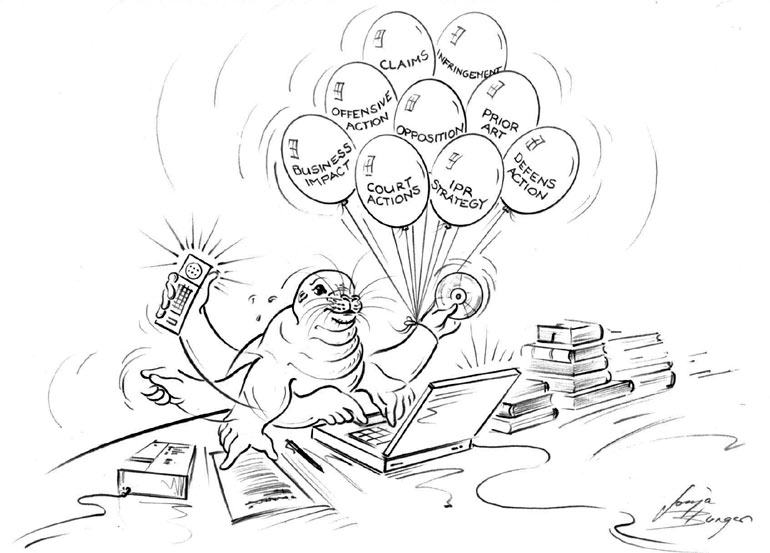Intellectual Property
Expertise
The French have a
saying "Les experts ont tort!" (The Experts are wrong!)
Unfortunately, this French saying is often true in Intellectual Property matters.
Private Expertise
Practicing
IP-Counsels must advise clients continuously, either to execute or to
stop a planned action. Clients often require expertise when an
infringement of an IP-right is assumed. The effect of such
expertise may be of significant economic influence on the future of a
company or industry. Most experts try to minimize their own risks
when giving written advice. Thus the decision-maker cannot rely
on
such advice. Worse still, in order to reduce risks, market
opportunities may remain unexploited.
Court Expertise
When courts appoint
an expert, it is often a person with an excellent technical background,
but with very little experience in IP matters. To increase
objectivity, the court asks the expert standard questions that have
been
used in similar cases. The parties may propose minor
modifications
to such questions or can propose supplementary questions either before
the expertise or following completion.
The results of a
court's expertise are, by definition, frustrating for one or both
parties. When the expert introduces unexpected arguments, it is
frustrating for their attorneys as well. We recall a discussion
with an acknowledged expert in patent matters. He was very proud
when he said: "For more than 15 years I have not drafted any
patent applications, I only provide expertise and give advice to junior
attorneys." When the court forwarded his expertise to us, it came
as no small surprise that it was contradictory to the examination
practice of the European Patent Office and to the current decisions of
the Board of Appeal!
Courts seldom apoint a second expert, even when the results of the first expertise are in doubt. This may lead to unpredictable decisions on all levels.
Courts seldom apoint a second expert, even when the results of the first expertise are in doubt. This may lead to unpredictable decisions on all levels.
Conclusion
Our firm is not
willing to provide expertise for courts, since these are limited to
specific questions and territories. They do not allow global
advice to be given to the parties to solve their real problems.
We prefer to give
advice, after evaluating all technical, economic, and legal risks,
directed not only to a specific situation or problem, but to the future
of the product or the company.
